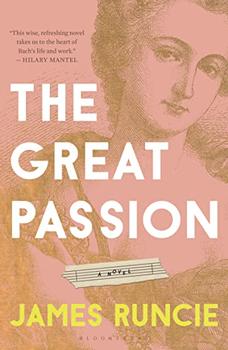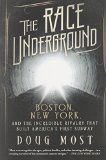Summary | Excerpt | Reviews | Beyond the book | Read-Alikes | Genres & Themes | Author Bio

A Novel
by Robert LohrBased on a true story, The Chess Machine is the breathtaking historical adventure of a legendary invention that astounded all who crossed its path
Vienna 1770: Baron Wolfgang von Kempelen unveils a strange and amazing invention, the Mechanical Turk, a sensational and unbeatable chess-playing automaton. But what the Habsburg court hails as the greatest innovation of the century is really nothing more than a brilliant illusion. The chess machine is secretly operated from inside by the Italian dwarf Tibor, a God-fearing social outcast whose chess-playing abilities and diminutive size make him the perfect accomplice in this grand hoax.
Von Kempelen and his helpers tour his remarkable invention all around Europe to amaze and entertain the public, but despite many valiant attempts and close calls, no one is able to beat the extraordinary chess machine. The crowds all across Europe adore the Turk, and the success of Baron von Kempelen seems assured. But when a beautiful and seductive countess dies under mysterious circumstances in the presence of the automaton, the Mechanical Turk falls under a cloud of suspicion, and the machine and his inventor become the targets of espionage, persecution, and aristocratic intrigue. What is the dark secret behind this automaton and what strange powers does it hold? The Chess Machine is a daring and remarkable tale, based on a true story, full of envy, lust, scandal and deception.
Although the pacing is slow at times and some parts could have been trimmed without loss to the main flow, there is much to enjoy in The Chess Machine. We experience moments of high drama and humor, sometimes on the same page; swordfights and court intrigues; plus a growing tension as we come to know and care for the big hearted man inside the little body who has only his faith to hang on to as he is drawn further and further into Kempelen's deception and delusions of grandeur...continued
Full Review
 (496 words)
(496 words)
(Reviewed by BookBrowse Review Team).
Chess is thought to have originated in northern India or Afghanistan. The earliest written references are from around 600 AD but there is some evidence that the game could have existed as early as 100 AD. Interest in chess spread along the trade routes from India, with differentvariations found in different countries, such as Shogi in Japan and Xiangqi in China.
The variation known to Europeans and Americans today (Western Chess or International Chess) traveled through Iran to Italy and Spain with the Moors in the early 11th century, and from there to Scandinavia and Iceland with sea-faring "Vikings". By the early 15th century, chess was well established across Europe.
The six different chess pieces represent a cross section of medieval life:...

If you liked The Chess Machine, try these:

by James Runcie
Published 2023
From acclaimed bestselling author James Runcie, a meditation on grief and music, told through the story of Bach's writing of the St. Matthew Passion.

by Doug Most
Published 2015
The Race Underground is a great American saga of two rival American cities, their rich, powerful and sometimes corrupt interests, and an invention that changed the lives of millions.
Talent hits a target no one else can hit; Genius hits a target no one else can see.
Click Here to find out who said this, as well as discovering other famous literary quotes!